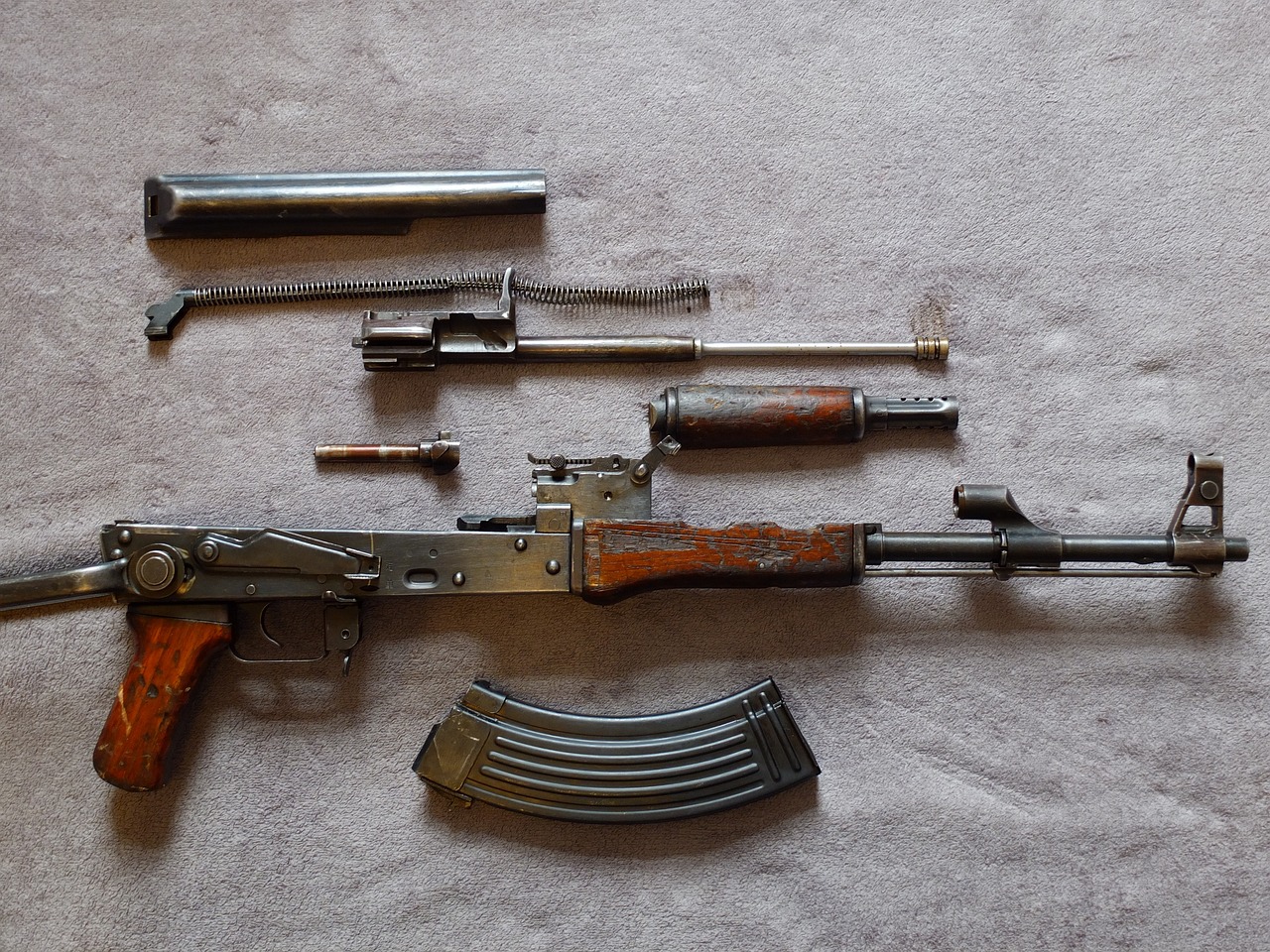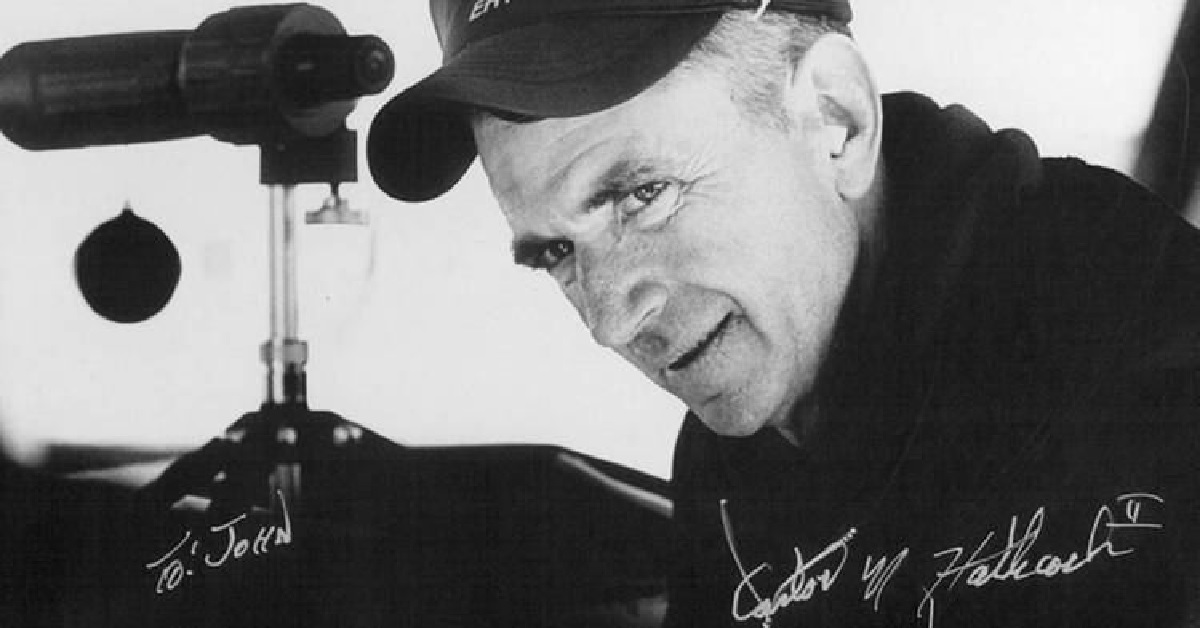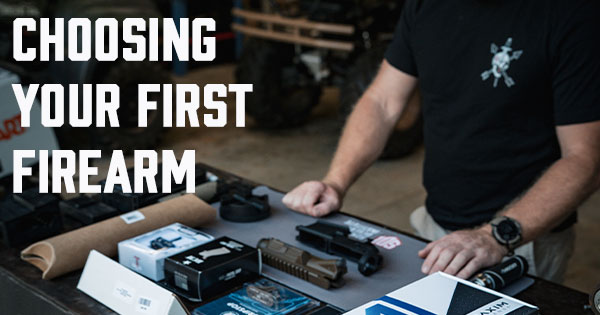
Ask any gun owner about their first firearm and you’ll often hear more than just a make and model. You’ll get a story. A memory. Sometimes even a turning point.
For many, that first gun marks a rite of passage, a new layer of responsibility, or the spark of a lifelong hobby. Whether inherited, purchased for protection, or bought just for fun, it’s almost always unforgettable.
Here’s what to consider when choosing your first firearm and why it matters more than you think.
Would you rather watch? Catch the latest episode of The Gun Rack Podcast – Your First Firearm Episode, with Bart Miller, SDI Firearms Specialist with over 35 years of gunsmithing experience.
Why Do People Buy Their First Firearm?
Everyone’s journey is different, but most first-time firearm purchases come down to three main motivations:
-
Self-defense – For many adults, the first gun is a concealed carry pistol or home defense shotgun driven by the desire for security and peace of mind.
-
Hunting and survival – Others are drawn to firearms through outdoor traditions, wild game hunting, or a general preparedness mindset.
-
Recreation and community – Range days with friends, a new sport, or simply wanting to learn the skill responsibly can inspire a first-time purchase.
Some start early with BB guns or pellet rifles. Others don’t pick up a firearm until adulthood. Either way, the reasons behind that first choice often stick just as much as the gun itself.
Inherited vs. Purchased: Sentimental Firsts
Sometimes your first gun isn’t one you choose. It’s one that’s handed down.
Heirloom firearms passed down from a parent or grandparent often carry more emotional weight than anything new. A scratched-up .22 or a beat-up single-shot shotgun might not be worth much on paper, but its value can be immeasurable.
That’s why many gunsmiths and owners prefer an aged restoration approach. The goal is to bring the firearm back to safe, functional condition while preserving the unique wear and character. Every dent tells a story, and keeping those stories alive is part of what makes firearms culture so personal.
What to Ask Yourself Before Choosing a First Gun
If you’re shopping for your own first firearm or helping someone else with theirs, start by answering these questions:
-
What is the intended use? Self-defense, hunting, sport shooting, or training?
-
Who will be using it? Age, physical strength, and prior experience all matter.
-
What are your comfort and safety levels? Are you recoil-sensitive or noise-sensitive?
-
Where will it be used or stored? Consider storage needs and local laws.
-
What’s your budget? Factor in training, ammunition, and accessories, not just the firearm.
Recommended First Firearm Types
Rifles (.22 LR bolt-action or semi-auto)
A .22 is one of the most common and recommended first guns, especially for younger shooters. It’s affordable, low recoil, and simple to operate, making it ideal for teaching firearm safety and basic marksmanship.
-
Ammunition is inexpensive
-
Perfect for plinking, small game, or early training
-
Builds confidence and discipline
-
Easy to clean and maintain
Shotguns (20 gauge or break-action .410)
For hunting or home defense, shotguns are another popular starting point. Break-action shotguns are especially useful for teaching safety because it’s clear when they’re unloaded and safe.
-
20 gauge is often a better fit for new shooters than 12 gauge or .410
-
Mossberg 500 and Remington 870 are reliable, widely available pump-action options
-
Some shotguns accept mini shells to reduce recoil and increase capacity
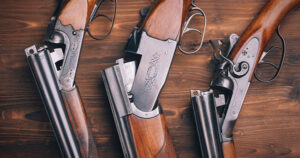
Handguns (full-size for beginners)
Many first-time buyers are looking for a handgun for concealed carry or home defense. Compact pistols are popular, but starting with a full-size handgun can improve accuracy and comfort for new shooters.
-
Rent different models before buying
-
Prioritize comfort, safety, and ease of use
-
Don’t rush into carrying without training
AR-15s and modern sporting rifles
With proper mentorship, AR-15 platforms can be a great first rifle for adults interested in home defense or sport shooting. However, they require strong safety discipline and familiarity with muzzle awareness.
-
Start slow with one round at a time, then progress gradually
-
Get instruction from a trusted, experienced mentor
- Maintain focus to avoid unsafe excitement at the range
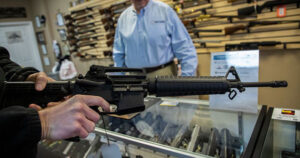
Should First-Time Shooters Use a Suppressor?
Suppressors can reduce both noise and recoil, making them great tools for sensitive shooters or young learners. But they come with a few important considerations:
-
Suppressors get extremely hot after just a few rounds
-
Improper mounting or loose threading can be dangerous
-
They change point of impact and require adjustment
-
Legal restrictions apply in many states, including tax stamps and registration
Suppressors can be beneficial, and with the right guidance and experience, they are a lot of fun too.
Advice for Sellers
If you’re guiding someone through their first firearm purchase, the #1 rule is simple: Listen twice as much as you give advice.
We recommend starting with purpose, not price. Once they understand the value of the gun that fits their needs, they’ll often adjust their budget. They’re not just buying a gun—they’re buying safety, reliability, and confidence.
And if a buyer comes in with a long wishlist from the internet? They’re not uneducated—they’re overwhelmed. The goal is to help them prioritize and find a starting point.
The Bottom Line
Your first firearm is more than a tool. It’s an introduction to safety, confidence, and a lifelong respect for what it means to own and handle a gun responsibly.
Whether you’re buying one for yourself, restoring a family heirloom, or helping someone else start their journey, the same core principles apply. Start small. Start smart. And build your experience with care.
Ready to take the next step?
SDI’s online firearms technology programs give you the hands-on skills and industry knowledge to go further—whether you’re starting your career or leveling up your passion.
👉 Explore SDI’s Programs
👉 Request More Information


